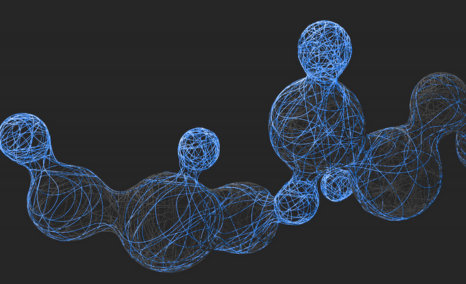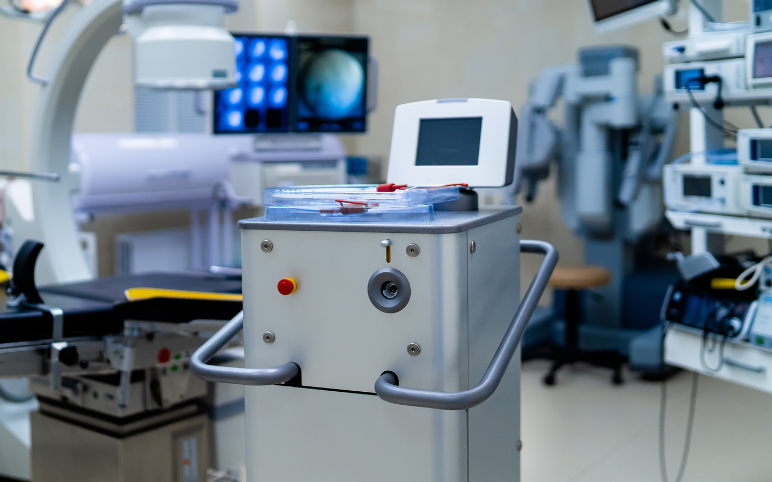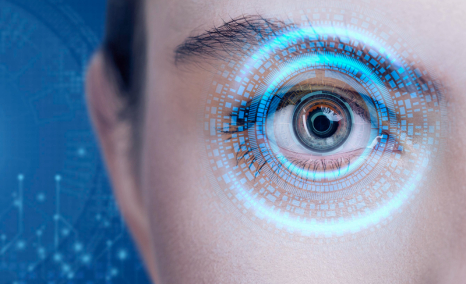How are Technological Trends and Innovations Reshaping the Dementia Care?
Nov 02, 2022
Table of Contents
Dementia is a leading neurological condition that affects the brain and worsens over time. It leads to progressive cognitive and functional degeneration and results in several neuropsychiatric symptoms. As per the estimate, about 55 million people globally live with dementia, and around 10 million new cases are observed every year. As per the WHO, the number of Dementia cases is expected to rise to 78 million in 2030 and 139 million in 2050. Most dementia cases are in low- and middle-income countries, and the lack of efficient healthcare services creates an extra burden. It is also one of the leading causes of death among all diseases. There are many different forms of dementia, such as Alzheimer’s, vascular dementia, Lewy body, and frontotemporal dementia. Alzheimer’s is the most common form of dementia, accounting for about 60-70% of cases. People below the age of 50 rarely depict the symptoms of dementia, but after the age of 50, the prevalence doubles every five years. As per Arvanitakis et al. (2019), about one-third of all persons aged 85 and up may have some kind of Dementia, but it is not a normal component of aging.
Dementia is defined as a loss of cognitive function, such as thinking, remembering, and reasoning, to the extent that it affects a person’s everyday life and activities. Dementia patients usually lose control of their emotions, and their personalities tend to shift. Biological aging, stroke, depression, head trauma, and injuries are critical factors for the development of dementia. Poor diet (nutritional deficiencies), exercise, smoking, cardiovascular risk factors, and excessive alcohol use may also create an impact on Dementia development. Dementia creates a wide range of physical, psychological, social, and economic burdens on individuals and their families. It increases the risk of disability and high levels of dependency burden among other family members and caregivers for daily activities.
Downloads
Click Here To Get the Article in PDF
Recent Articles
- Glowing Prospects: Energy-Based Aesthetic Devices Market Outlook
- PAVmed-Novosound’s Partnership; J&J Acquires Abiomed; Approval to Sysmex’s Assay Kit t...
- AI-Driven Diagnostics: Why are They the Next Big Thing in Healthcare?
- Rising of Orphan Drug Development
- Carl Zeiss Meditec AG’s Acquisition of Dutch Ophthalmic Research Center; Johnson & Johnson’s ...
Burden in Dementia Care and Management
According to the WHO, “dementia has significant social and economic implications in terms of direct medical and social care costs and informal care costs. In 2019, the estimated total global societal cost of dementia was US$ 1.3 trillion, and these costs are expected to surpass US$ 2.8 trillion by 2030 as both the number of people living with dementia and care costs increase.” Currently, no permanent treatment is available to cure Alzheimer’s disease and associated dementia. However, noticeable growth and development have been registered in the Alzheimer’s disease and dementia therapeutics market over the past few decades. Several anti-dementia medicines and disease-modifying therapies have been developed and launched to treat mild to severe Alzheimer’s disease for some time. To improve the treatment scenario, globally, several key companies are actively working in the Dementia therapeutics market. Companies are focussing on developing numerous new treatments, with few therapies in the advanced clinical stages expected to hit the market soon.
Similarly, new trends and technologies are also playing a pivotal role in Dementia care. Globally, several major MedTech and Healthcare companies are actively focusing on developing various assistive technologies for the management of Dementia. These Assistive technologies are designed to maximize independence and improve the quality of life. Additionally, these technologies ensure safety, reduce neuropsychiatric symptoms, and relieve caregiver burden.
Emerging Trends and Technologies in Dementia Care and Management
Technological innovation and development have reshaped several industries. In the healthcare sector, technology plays a crucial role in the health outcome. Assistive technologies are helping people with problems related to dementia and making a massive impact on their lives. Through devices and applications, technology assists people with dementia in carrying out their daily activities, socializing, keeping themselves safe, and doing many other tasks. Some of the leading assistive technologies in the dementia care segment include:
Clocks and Calendars
Clocks and calendars help people with dementia to keep track of the time, day, and date and manage their daily activities. These advanced clocks and calendars are immensely beneficial for people with dementia and reduce the anxiety associated with a diagnosis. Automatic calendar clocks show the date, day, and time. Some watches are available that can help to indicate whether it is morning or evening. Clocks automatically adjust and distinguish when it’s light in the evening or dark in the morning. The clocks and calendars can be downloaded as an app on a smartphone or tablet. They can be customized to meet several specific needs, such as an alarm that creates noise/ or song, a flashing light, or vibration. These app-based calendars and clocks are highly customizable.
Automated Prompts and Reminders
Today, different types of automated prompts and reminder devices are available in the market, specially designed for people with dementia to meet various needs. These devices come with a voice recording of the caregiver, family member, or friend. These prompts and reminders can provide valuable information and play a preset message at a particular time, like when to take the medication, close the doors, and when to sleep or eat, among other things. These devices can also be operated remotely.
Timed or Automatic Pill Dispenser
Taking the medication at the right time is necessary for better health outcomes. People with dementia often face challenges in taking medicine at the right time. Pill boxes are a crucial innovation that can overcome this challenge. An automatic pill dispenser provides secure storage and timely reminders. The automatic pill dispenser boxes have different compartments for days of the week and times of day to make it clear when to take the medication.
Similarly, some high-tech automated pill dispensers are pre-filled and locked. These automatic pill dispensers come with an alarm. Dispensers alert friends or family and can remind caretakers if the medication hasn’t been taken or if the device has a problem. The automatic pill dispenser has drawbacks as the user or the caregiver needs to invest time to fill and program the machine.
Medication Management
Medication management is operated through a phone, tablet, or computer to timely alert the user about the medication intake. These apps are useful for better healthcare outcomes. With the app and other electronic devices around, the caregiver can relax, as these medication management apps can remind the user to take or administer pills a few times a day. The caregiver can make medication schedules as per the time and day of the week. Similarly, some of the apps guide the person through the alarm-setting process. Med-Ready, LiveFine, MedaCube, and Med Minder are among the options for Medication management, with prices varying depending on the capability.
Communication Aids
The Communication Aids devices help patients to stay connected and maintain contact with family members and caregivers. The devices are intended to keep the person engaged while functioning at their optimal level of independence. Adapted telephones are the most frequent form of equipment. These devices can be pre-programmed with numbers that are often used. Similarly, devices come with a single button with their portrait on it, which the user can call a friend or relative. Likewise, the touchscreen function enables devices demand is also getting higher among users as they come with many interactive features.
Device/Object Locator
People with dementia often forget or misplace things like keys, wallets/purses, glasses, and other items. The location finder can help the person track these lost or misplaced objects. A locator device is a small electronic tag attached to different essential things. Upon pressing a button on the locator, the label/tag attached to the item gets activated and generates either a beeping noise, a flashing light, or a combination of both. The tags attached to the objects can be tracked using a smartphone app.
Sensors and Safety
To provide a safe environment for persons with Dementia, companies are working on developing sensor technology to track body activity and user behavior. These sensors can be equipped with smartphones and wearables and can work individually. These sensors provide safety to the person with dementia at home and outside. The body sensor devices can extract and track activity, behavior, and daily living parameters. The sensors can detect signs combined with predictive analysis, which can be beneficial to prevent and managing the associated symptoms of the diseases. Apart from measuring the body parameters, some high-end sensors are available to make the home environment safer. The home sensors come in various sizes and forms and can provide valuable information, like alerting the caregiver when the patient leaves their bed, chair, or home. Similarly, it can track the activity when someone goes or enters the house and detect falls and wandering of the user.
GPS Location Tracker
People with dementia may try to get out of their homes or some specific location. In these cases, GPS trackers can be a valuable and life-saving tool. These location-tracking gadgets are an excellent alternative to provide them with a safer environment. The GPS trackers can alert and notify the caregiver after the patient travels left a specific location. Similarly, the devices have certain functions like sending emergency messages and emitting sounds that can lead to a safe and quick recovery.
Voice Assistants
Voice assistants are gaining massive popularity among the general public. Similarly, for people with dementia, voice assistant devices like Amazon and Google are benefitting immensely. These technologies are crucial in reminding people to carry out their daily tasks. The devices can also entertain the person with their favorite music, read engaging audiobooks, play games, and answer questions 24/7.
Apart from the technologies mentioned above, Night Sensors, Memory Joggers, Electronic Games, and Digital Photo Frames are other emerging tools playing a vital role in the lives of people with dementia.
Dementia Care and Management – Future Perspectives
To the family member or the caregiver, dementia can lead to a much higher level of anxiety and depression as they may not be able to pay attention to their own needs. It can be a cause of sleep problems and chronic fatigue. Similarly to the patient, it can lead to several adverse effects and social, behavioral, and economic implications.
The assistive tools and technologies look simple, but they have huge meanings and importance in the lives of people with dementia. The assistive technologies make the person self-sufficient in managing their daily activities and help them to overcome challenges. They are creating meaningful differences and reducing their dependency to a more considerable extent on their families and carers. In the coming years, with the ongoing technological innovation, dementia care and management are expected to improve immensely, leading to higher social involvement, security, and monitoring of the physical and behavioral status of people with dementia.

Downloads
Article in PDF
Recent Articles
- Teleflex Receives FDA 510(k) Clearance to Expand Use of QuikClot Control+™; Edwards Wins FDA Nod ...
- Amgen to Purchase Horizon Therapeutics; IND Clearance to Vertex’s VX-522; FDA Fast-Track Designat...
- Carl Zeiss Meditec AG’s Acquisition of Dutch Ophthalmic Research Center; Johnson & Johnson’s ...
- Medical Devices Market Blooms as the Key MedTech Companies Continue to Bring-In Innovation
- A New Dawn in Alzheimer’s Disease Treatment: Eli Lilly’s Donanemab Wins FDA Approval



